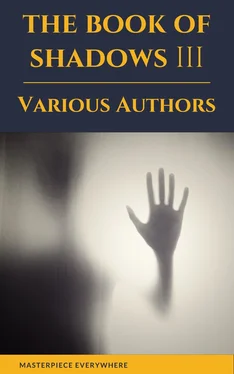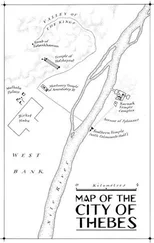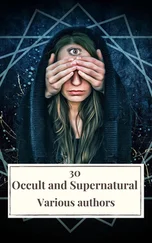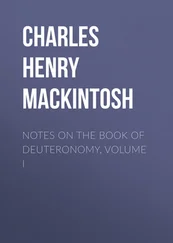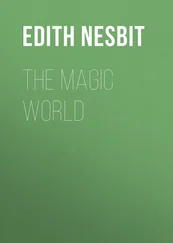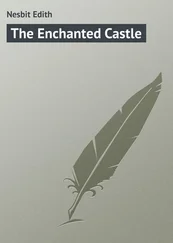The “bodies drawed out man-size” were gone , and their marble slabs lay wide and bare in the vague moonlight that slanted through the east window.
Were they really gone? or was I mad? Clenching my nerves, I stooped and passed my hand over the smooth slabs, and felt their flat unbroken surface. Had someone taken the things away? Was it some vile practical joke? I would make sure, anyway. In an instant I had made a torch of a newspaper, which happened to be in my pocket, and lighting it held it high above my head. Its yellow glare illumined the dark arches and those slabs. The figures were gone. And I was alone in the church; or was I alone?
And then a horror seized me, a horror indefinable and indescribable – an overwhelming certainty of supreme and accomplished calamity. I flung down the torch and tore along the aisle and out through the porch, biting my lips as I ran to keep myself from shrieking aloud. Oh, was I mad – or what was this that possessed me? I leaped the churchyard wall and took the straight cut across the fields, led by the light from our windows. Just as I got over the first stile, a dark figure seemed to spring out of the ground. Mad still with that certainty of misfortune, I made for the thing that stood in my path, shouting, “Get out of the way, can’t you!”
But my push met with a more vigorous resistance than I had expected. My arms were caught just above the elbow and held as in a vice, and the rawboned Irish doctor actually shook me.
“Would ye?” he cried, in his own unmistakable accents – “would ye, then?”
“Let me go, you fool,” I gasped. “The marble figures have gone from the church; I tell you they’ve gone.”
He broke into a ringing laugh. “I’ll have to give ye a draught tomorrow, I see. Ye’ve bin smoking too much and listening to old wives’ tales.”
“I tell you, I’ve seen the bare slabs.”
“Well, come back with me. I’m going up to old Palmer’s – his daughter’s ill; we’ll look in at the church and let me see the bare slabs.”
“You go, if you like,” I said, a little less frantic for his laughter; “I’m going home to my wife.”
“Rubbish, man,” said he; “d’ye think I’ll permit of that? Are ye to go saying all yer life that ye’ve seen solid marble endowed with vitality, and me to go all me life saying ye were a coward? No, sir – ye shan’t do ut.”
The night air – a human voice – and I think also the physical contact with this six feet of solid common sense, brought me back a little to my ordinary self, and the word “coward” was a mental shower-bath.
“Come on, then,” I said sullenly; “perhaps you’re right.”
He still held my arm tightly. We got over the stile and back to the church. All was still as death. The place smelt very damp and earthy. We walked up the aisle. I am not ashamed to confess that I shut my eyes: I knew the figures would not be there. I heard Kelly strike a match.
“Here they are, ye see, right enough; ye’ve been dreaming or drinking, asking yer pardon for the imputation.”
I opened my eyes. By Kelly’s expiring vesta [match] I saw two shapes lying “in their marble” on their slabs. I drew a deep breath, and caught his hand.
“I’m awfully indebted to you,” I said. “It must have been some trick of light, or I have been working rather hard, perhaps that’s it. Do you know, I was quite convinced they were gone.”
“I’m aware of that,” he answered rather grimly; “ye’ll have to be careful of that brain of yours, my friend, I assure ye.”
He was leaning over and looking at the right-hand figure, whose stony face was the most villainous and deadly in expression.
“By Jove,” he said, “something has been afoot here – this hand is broken.”
And so it was. I was certain that it had been perfect the last time Laura and I had been there.
“Perhaps someone has tried to remove them,” said the young doctor.
“That won’t account for my impression,” I objected.
“Too much painting and tobacco will account for that, well enough.”
“Come along,” I said, “or my wife will be getting anxious. You’ll come in and have a drop of whisky and drink confusion to ghosts and better sense to me.”
“I ought to go up to Palmer’s, but it’s so late now I’d best leave it till the morning,” he replied. “I was kept late at the Union, and I’ve had to see a lot of people since. All right, I’ll come back with ye.”
I think he fancied I needed him more than did Palmer’s girl, so, discussing how such an illusion could have been possible, and deducing from this experience large generalities concerning ghostly apparitions, we walked up to our cottage. We saw, as we walked up the garden-path, that bright light streamed out of the front door, and presently saw that the parlour door was open too. Had she gone out?
“Come in,” I said, and Dr. Kelly followed me into the parlour. It was all ablaze with candles, not only the wax ones, but at least a dozen guttering, glaring tallow dips, stuck in vases and ornaments in unlikely places. Light, I knew, was Laura’s remedy for nervousness. Poor child! Why had I left her? Brute that I was.
We glanced round the room, and at first we did not see her. The window was open, and the draught set all the candles flaring one way. Her chair was empty and her handkerchief and book lay on the floor. I turned to the window. There, in the recess of the window, I saw her. Oh, my child, my love, had she gone to that window to watch for me? And what had come into the room behind her? To what had she turned with that look of frantic fear and horror? Oh, my little one, had she thought that it was I whose step she heard, and turned to meet – what?
She had fallen back across a table in the window, and her body lay half on it and half on the window-seat, and her head hung down over the table, the brown hair loosened and fallen to the carpet. Her lips were drawn back, and her eyes wide, wide open. They saw nothing now. What had they seen last?
The doctor moved towards her, but I pushed him aside and sprang to her; caught her in my arms and cried—
“It’s all right, Laura! I’ve got you safe, wifie.”
She fell into my arms in a heap. I clasped her and kissed her, and called her by all her pet names, but I think I knew all the time that she was dead. Her hands were tightly clenched. In one of them she held something fast. When I was quite sure that she was dead, and that nothing mattered at all any more, I let him open her hand to see what she held.
It was a grey marble finger.
Vincent O’Sullivan
1896
“And yet my heart
Will not confess he owes the malady
That doth my life besiege.”
—All’s Well that Ends Well
That was the worst of Ravenel Hall. The passages were long and gloomy, the rooms were musty and dull, even the pictures were sombre and their subjects dire. On an autumn evening, when the wind soughed and wailed through the trees in the park, and the dead leaves whistled and chattered, while the rain clamoured at the windows, small wonder that folks with gentle nerves went a-straying in their wits! An acute nervous system is a grievous burden on the deck of a yacht under sunlit skies: at Ravenel the chain of nerves was prone to clash and jangle a funeral march. Nerves must be pampered in a tea-drinking community; and the ghost that your grandfather, with a skinful of port, could face and never tremble, sets you, in your sobriety, sweating and shivering; or, becoming scared (poor ghost!) of your bulged eyes and dropping jaw, he quenches expectation by not appearing at all. So I am left to conclude that it was tea which made my acquaintance aft-aid to stay at Ravenel. Even Wilvern gave over; and as he is in the Guards, and a polo player his nerves ought to be strong enough. On the night before he went I was explaining to him my theory, that if you place some drops of human blood near you, and then concentrate your thoughts, you will after a while see before you a man or a woman who will stay with you during long hours of the night, and even meet you at unexpected places during the day. I was explaining this theory, I repeat, when he interrupted me with words, senseless enough, which sent me fencing and parrying strangers – on my guard.
Читать дальше
